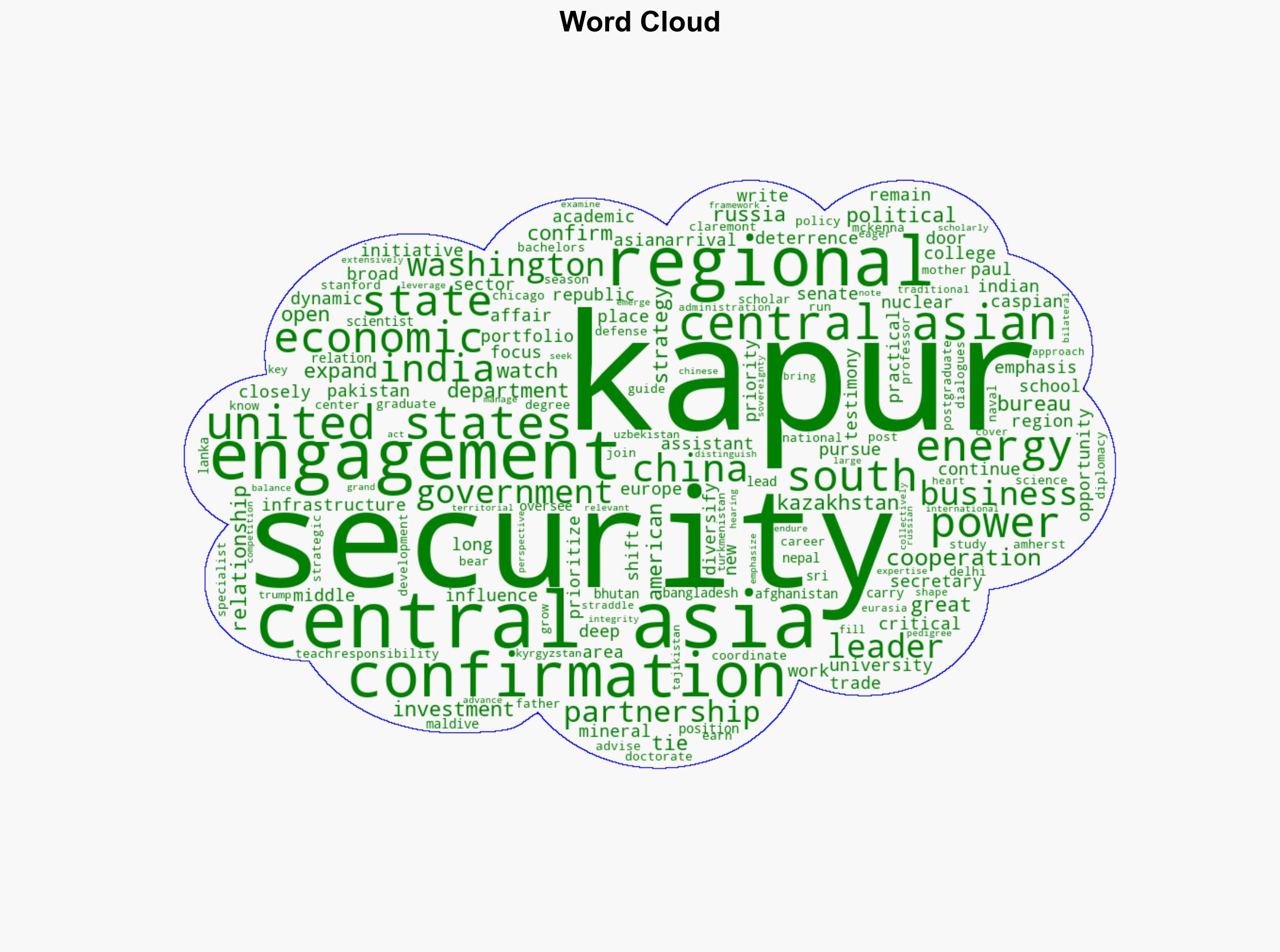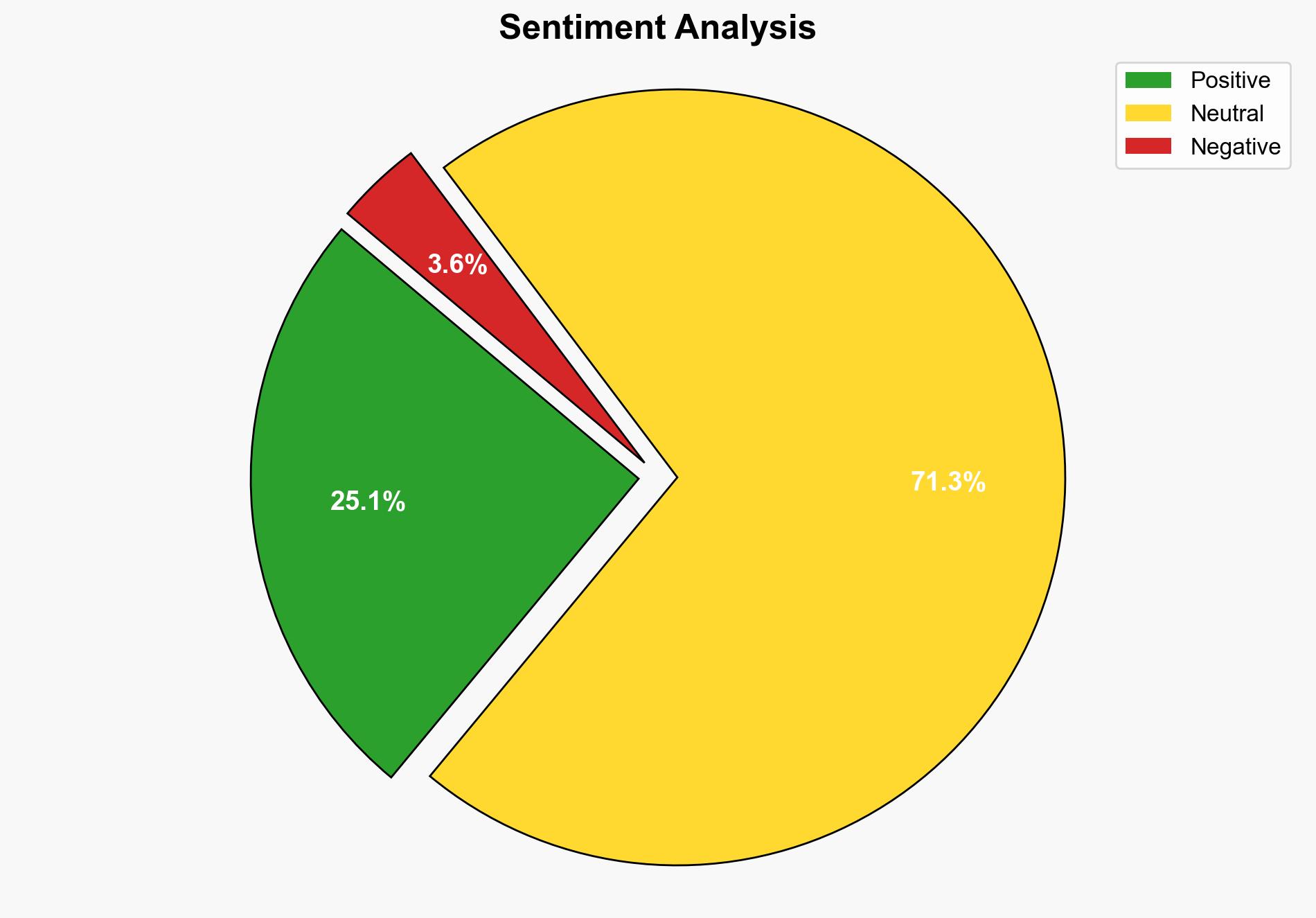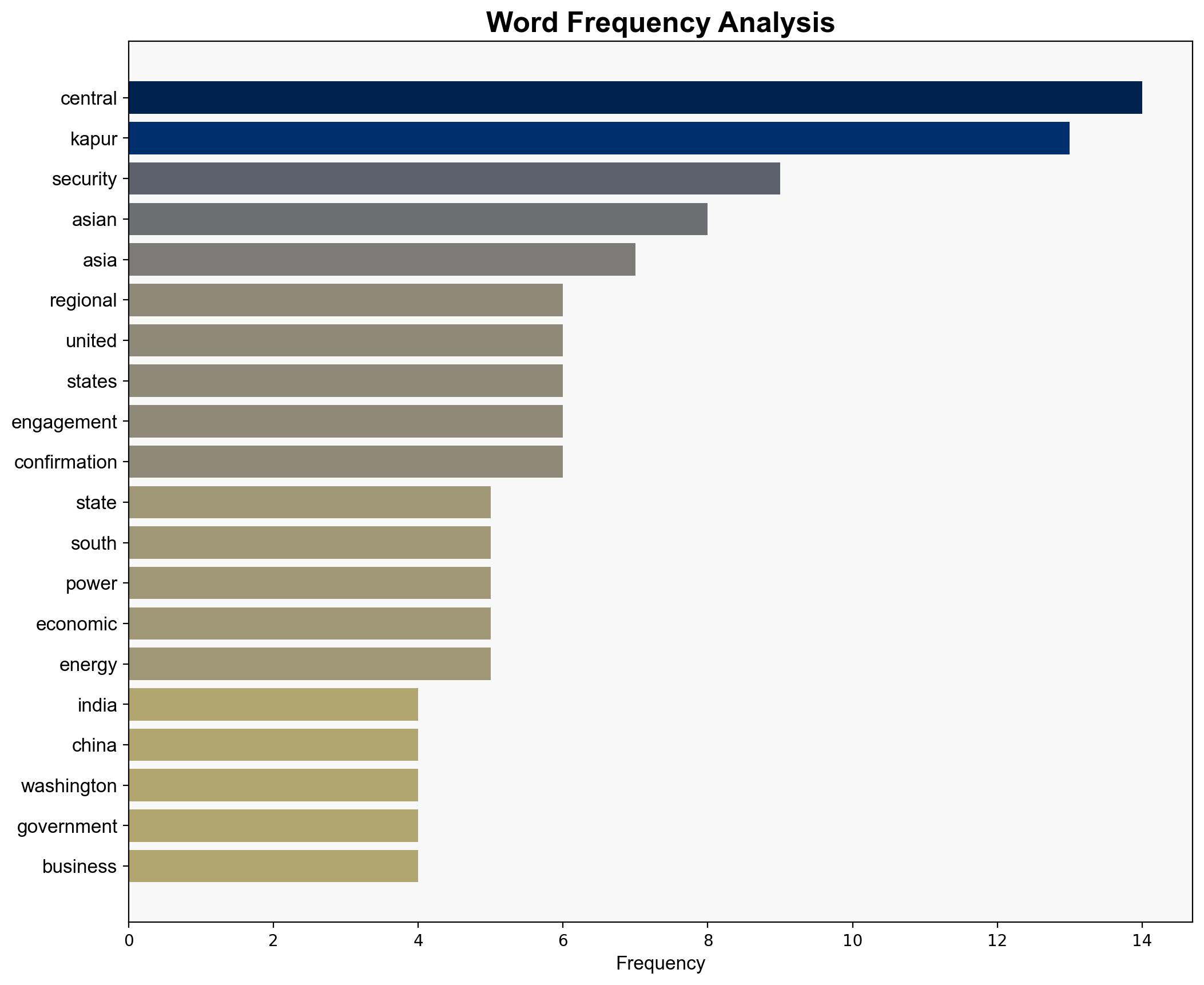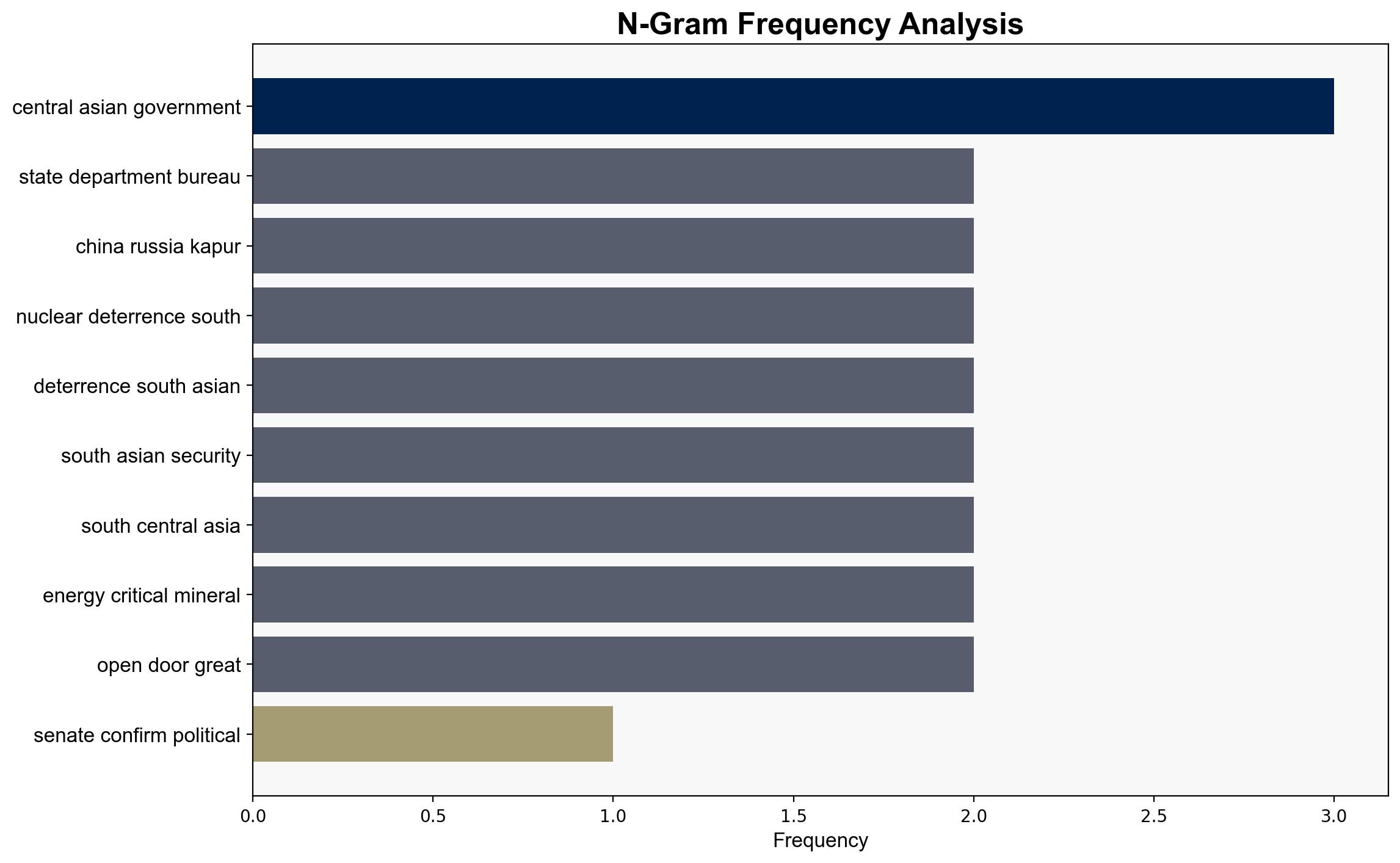S Paul Kapur Confirmed As US Assistant Secretary For South And Central Asian Affairs – Hoover.org
Published on: 2025-10-09
Intelligence Report: S Paul Kapur Confirmed As US Assistant Secretary For South And Central Asian Affairs – Hoover.org
1. BLUF (Bottom Line Up Front)
The confirmation of S Paul Kapur as Assistant Secretary for South and Central Asian Affairs is strategically significant, with a high confidence level that his appointment will enhance U.S. diplomatic and security engagement in the region. The most supported hypothesis is that Kapur’s expertise will lead to a balanced approach in managing U.S. interests between security and economic partnerships. Recommended action includes leveraging Kapur’s academic and strategic background to strengthen ties with regional powers and counterbalance Chinese and Russian influence.
2. Competing Hypotheses
Hypothesis 1: Kapur’s confirmation will primarily strengthen U.S. security partnerships in South and Central Asia, focusing on counterterrorism and military cooperation.
Hypothesis 2: Kapur’s appointment will pivot U.S. focus towards economic partnerships and infrastructure development in the region, reducing reliance on security-centric strategies.
Using ACH 2.0, Hypothesis 2 is better supported due to Kapur’s emphasis on economic engagement and infrastructure development during his confirmation hearing, aligning with regional leaders’ interests in diversifying partnerships beyond security.
3. Key Assumptions and Red Flags
Assumptions include the belief that regional states are equally interested in economic partnerships as they are in security alliances. A potential red flag is the assumption that Kapur’s academic background will seamlessly translate into effective diplomatic engagement. There is a risk of cognitive bias in overestimating the willingness of regional powers to shift focus from security to economic cooperation.
4. Implications and Strategic Risks
The strategic shift towards economic partnerships could lead to increased U.S. influence in infrastructure and energy sectors, potentially escalating competition with China and Russia. A failure to balance security and economic interests may result in regional instability. The geopolitical landscape is volatile due to Russia’s actions in Ukraine and China’s Belt and Road Initiative, which could complicate U.S. efforts.
5. Recommendations and Outlook
- Enhance diplomatic efforts to ensure regional states’ buy-in for economic initiatives, leveraging Kapur’s expertise.
- Monitor geopolitical developments closely to adapt strategies in real-time.
- Scenario Projections:
- Best Case: Successful diversification of partnerships leads to regional stability and reduced Chinese influence.
- Worst Case: Overemphasis on economic ties weakens security alliances, leading to increased regional threats.
- Most Likely: A balanced approach results in moderate gains in both security and economic domains.
6. Key Individuals and Entities
S Paul Kapur, regional governments of Afghanistan, Pakistan, India, Sri Lanka, Bangladesh, Nepal, Maldives, Bhutan, Kazakhstan, Kyrgyzstan, Tajikistan, Turkmenistan, Uzbekistan.
7. Thematic Tags
national security threats, cybersecurity, counter-terrorism, regional focus





